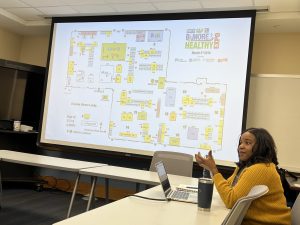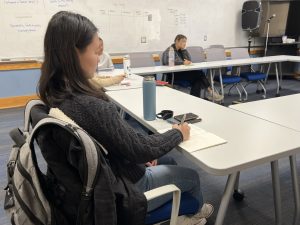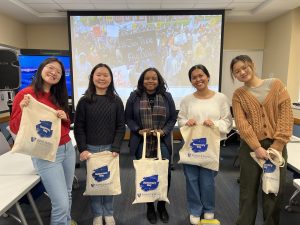Exploring Baltimore’s Public Health Landscape: The B’More Intersession Course
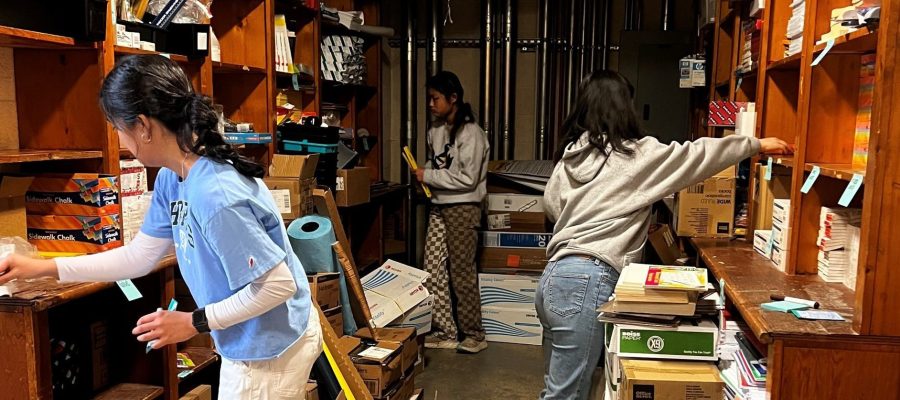
By: Cameron Moore
The B’More Intersession course, “Public Health and Baltimore’s Human Experience,” offers students a unique opportunity to explore the intersection of public health and urban life. The B’More course is designed not only to educate students about public health but also to inspire them to get involved in their communities. Led by Shantell Roberts, a Workforce Development Manager at Baltimore Gas & Electric (BGE) with extensive experience in public health and community outreach, the course allows students to engage directly with the real-world challenges facing Baltimore’s communities.
A Multi-Faceted Approach to Public Health
For five years, Roberts has guided students through various iterations of this course, each focusing on different aspects of Baltimore’s public health landscape. Whether it’s examining public health systems, exploring the role of education in health outcomes, or tackling the challenges of food deserts and housing instability, the course aims to provide students with a well-rounded understanding of how these factors shape public health.
The course is designed to be engaging and dynamic, incorporating case studies, guest speakers, and field trips. One of the highlights is a volunteer project at Johnston Square Elementary School, where students can directly interact with the community and see the impact of their work. Roberts emphasizes that the course is not just about learning the issues—it’s about empowering students to think critically and come up with innovative solutions.
Student Reflections: Different Perspectives on Public Health
The B’More Intersession course is an enriching experience for students from various academic backgrounds. The following student reflections highlight the course’s impact and its role in broadening students’ understanding of public health.
Lily Zhu, Applied Mathematics and Statistics Major, Class of 2028
Lily Zhu enrolled in the B’More course to better understand the public health issues affecting Baltimore. “I wanted to become more aware and perspective-driven while living within the Hopkins ecosystem and interacting with Baltimore city residents,” she shares.
For Lily, the most interesting part of the course was learning about Baltimore’s history and policies through the lens of public health. The course gave her valuable insights into Baltimore and its residents lived experiences. “Baltimore is a…community with individuals with drastically different life experiences coexisting within the same environment,” she says. Lily appreciates the course’s focus on personal development, as it helped her connect her career aspirations with public health issues. She hopes to take another B’More course in the future to explore other aspects of public health.
Suwen Ren, Computer Science Major, Class of 2028
Suwen Ren, a first year student in Computer Science, joined the B’More course to gain exposure to a new field and to meet other students. “I was excited to participate in field trips and hands-on volunteering,” she says. Suwen found the hands-on learning experiences to be the most rewarding part of the course. She enjoyed the mix of lectures, discussions, and volunteer activities, which helped her gain a deeper understanding of Baltimore’s public health landscape.
Suwen also appreciated the assignment that encouraged students to reflect on their goals and how public health could relate to their future careers. “This course helped me become a more informed and empathetic person,” she says. Suwen would sign up for another B’More course if she were on campus during intersession, as she feels the course gave her valuable insights into public health and its connection to her own personal and professional development.
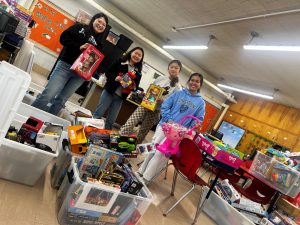 Theresa Aguilar, Molecular and Cellular Biology and Public Health Major, Class of 2028
Theresa Aguilar, Molecular and Cellular Biology and Public Health Major, Class of 2028
For Theresa Aguilar, a student interested in public health, the B’More course offered an opportunity to learn more about how public health functions within the Baltimore community. As a first-time intersession participant, Theresa had hoped the course would include more community-based learning, and it exceeded her expectations. “The best aspect of this course was our community volunteering at Johnston Square,” she says. There, students were able to see the intersectionality of public health and the public school system, offering a firsthand experience of how public health initiatives can support community members.
Theresa found the pace of the course comparable to her regular semester classes, noting that while it was faster due to the short duration, it was manageable. Her biggest takeaway was learning about the intersection between education and public health. “Education is the cornerstone that can open the door to social mobility and positive change in the life of a student and their family,” she reflects. This insight deepened her understanding of public health as she continues to pursue her studies and career in the field.
Through volunteer projects, discussions, and personal reflections, students gained a deeper understanding of Baltimore and how they can contribute to positive change. The course emphasizes the importance of empathy, collaboration, and service to others through hands on experience and collaboration.
Looking Ahead: Future Impact
Shantell Roberts’ multifaceted approach to teaching the B’More Intersession course provides students with a rich, comprehensive understanding of public health in Baltimore. The combination of academic learning, community engagement, and personal reflection helps students develop critical thinking skills and a sense of responsibility to their community. For many students, the course is just the beginning of a lifelong journey of service and advocacy.
It is clear that the course’s impact extends beyond just academic knowledge. It equips them with the tools to be informed, empathetic, and proactive citizens. The B’More Intersession course not only offers a window into Baltimore’s public health landscape, but also fosters a sense of community and empowerment that will resonate with students long after they leave the classroom.

